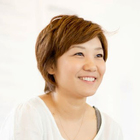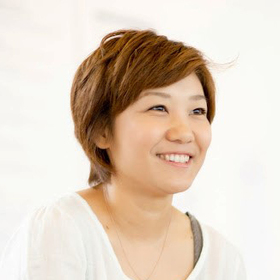2020: Collaborative Creation into the Future
In 2014, when SLOW LABEL was known as a craftsmanship brand, it established an NPO, and launched the Yokohama Paratriennale (below, Paratriennale) with Yokohama City's Cultural and Tourism Bureau and Health and Social Welfare Bureau. Part of the reason for its formation was our desire to break free from a dilemma of craftsmanship: only craftspeople are able to participate in it. There are many other people with exciting, unique perspectives and extraordinary abilities that, using the power of contemporary art, could contribute to society in a broader sense. Under the banner of "co-creation," their rare abilities could be used in developing towns and communities. We plan to hold the Paratriennale three times by 2020, the year of the Tokyo Olympic and Paralympic Games. For the Paratriennale, outstandingly talented people with disabilities and artists work together to produce new artistic expressions, and mutually complementary citizens and companies are cultivated, eliminating the many barriers that surround us. By 2021 we hope to do away with word "disabled."
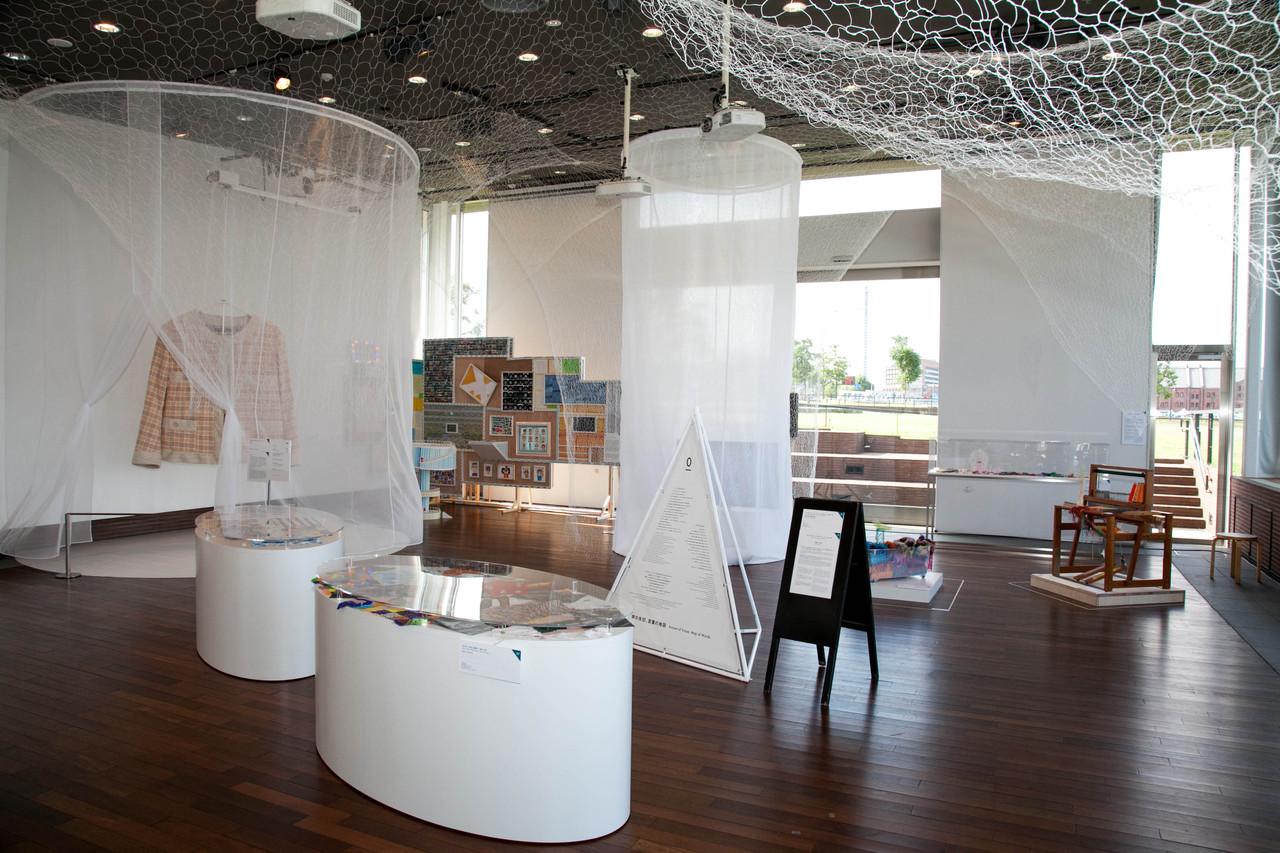
A new Paratriennale challenge for us is the performing arts. At the opening ceremony for the 2012 London Paralympics, I was impressed by a performance in which dancers with a variety of physical characteristics broke down existing notions regarding disabilities, and wanted to do something similar in Japan. First, I began reaching out to facilities for people with disabilities in Yokohama City. I was surprised by just how many people there are who enjoy moving their body to express themselves. However, working against this response, a workshop at Zou-no-Hana Terrace for those with and without disabilities presented more difficulties than were anticipated for the former's participation. There was the issue of accessibility. For example, participants who could not come alone were at the mercy of their family or helper's plans. Or, worries about causing troubles for others on the day of the event in the case of illness also acted as a barrier, making people hesitate to apply. I again realized just how different Japan is from Great Britain, where, already having a substantial population of artists, the Cultural Olympiad led to an increase in opportunities for people who engage in inclusive activities.
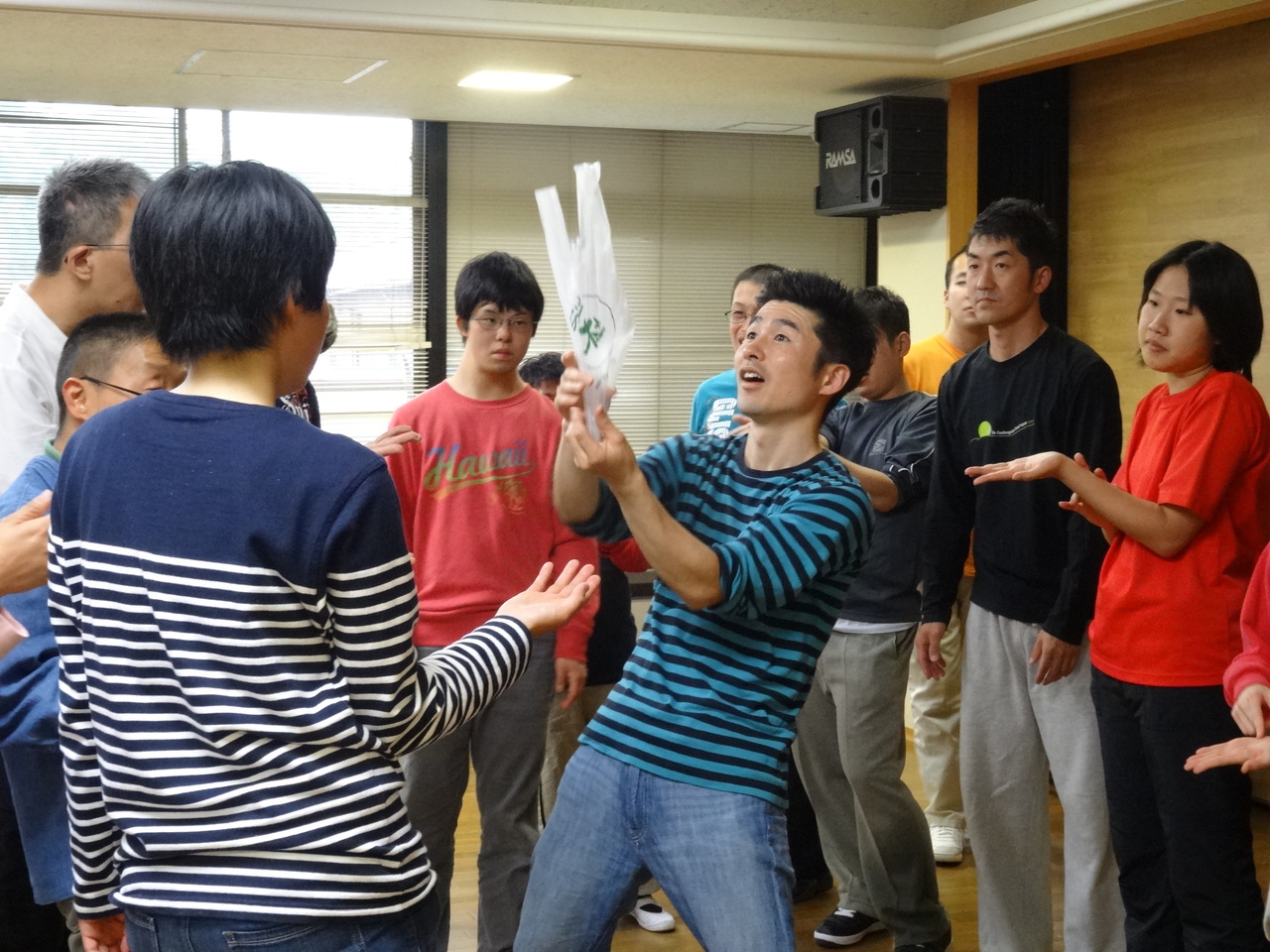
Two years later, aiming to improve accessibility we launched the "SLOW MOVEMENT" project, and worked to cultivate supporting human resources and to develop techniques for performances. We tried to anticipate things that could happen in the creation process when people from a variety of backgrounds participate, and acquire the ability to avoid them. Due to us having created teams, changed the theme and environment slightly each time, and steadily but surely acquired skills, more people with disabilities applied to participate than without, and we were able to try out highly difficult forms of expression. Furthermore, various municipalities and public cultural facilities began to take an interest in the project's activities, creating horizontal connections for sharing issues and know-how.
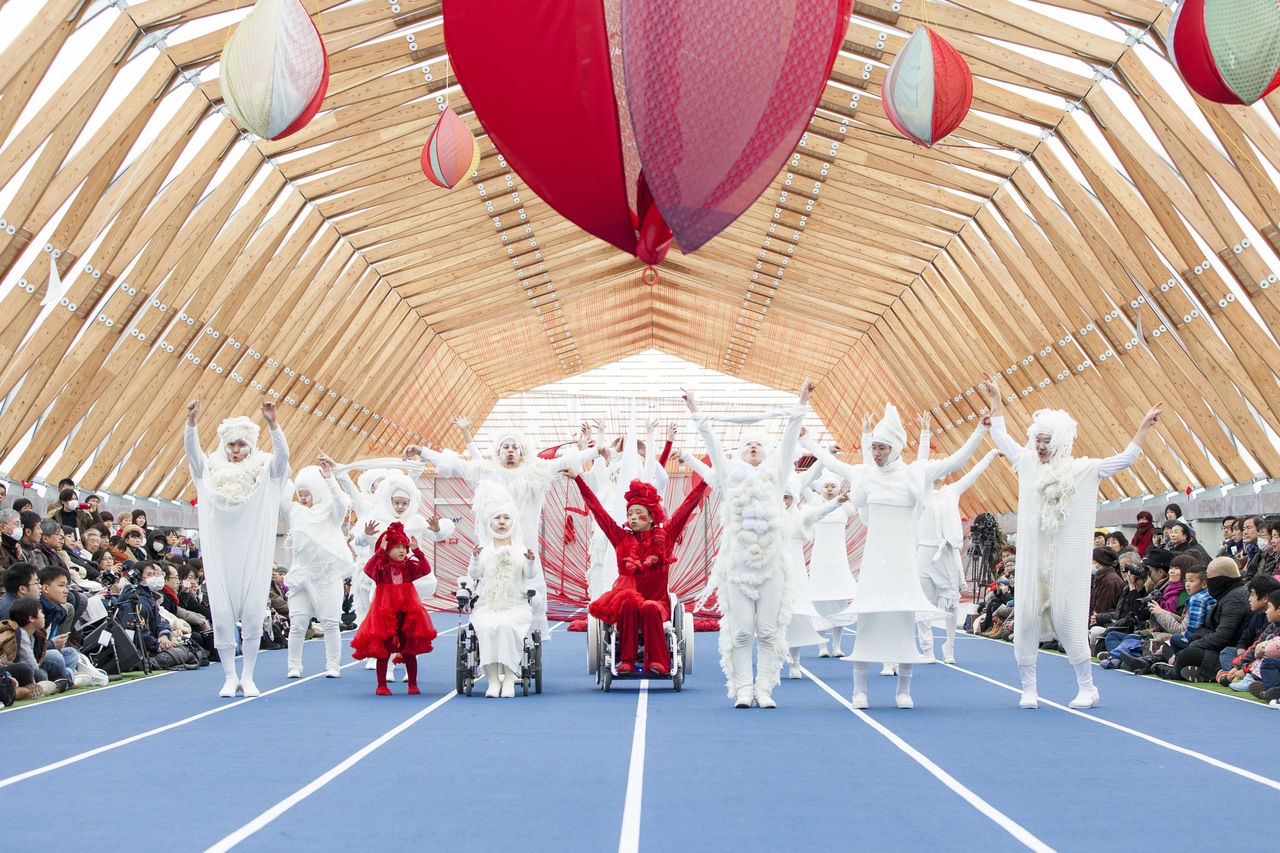
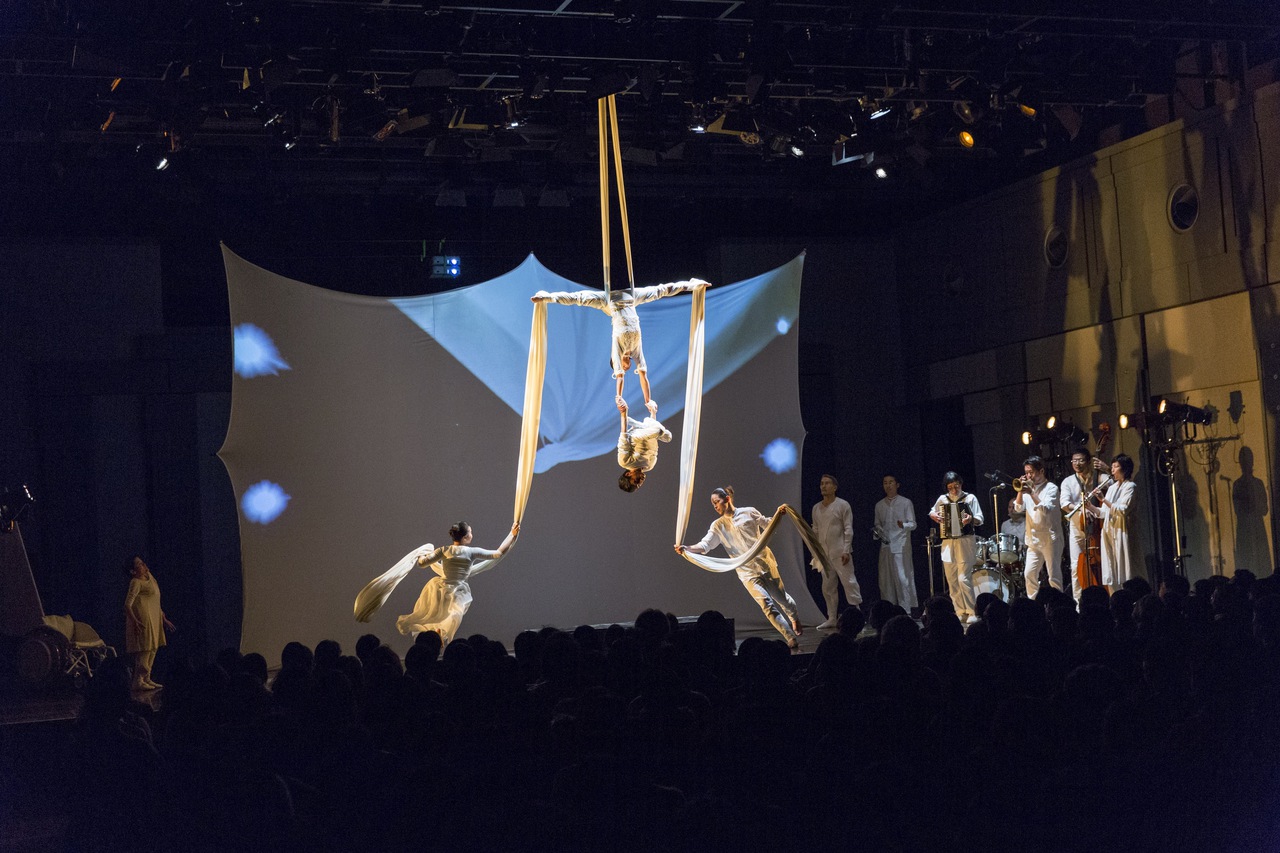
In December 2016, we were able to acquire a new hub for our activities, the Shin-toyosu Brillia Running Stadium. Here, aerial-training equipment also used in London was installed, and the project advanced from workshops that improve expressive abilities to training that heightens each individual's mental and physical performance. A program has begun to be developed in cooperation with physical therapists and personal trainers. It is not limited to dancers who aim to be professionals but is also meant to help promote the health of people with disabilities, who have few opportunities to train body and mind on a regular basis. Individuals from the field of medicine have expressed high hopes for it.
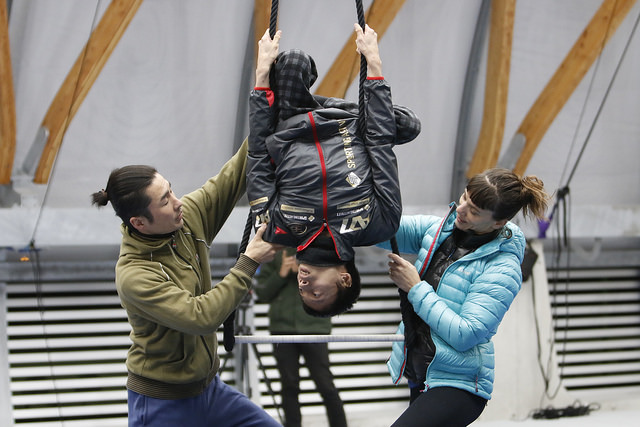
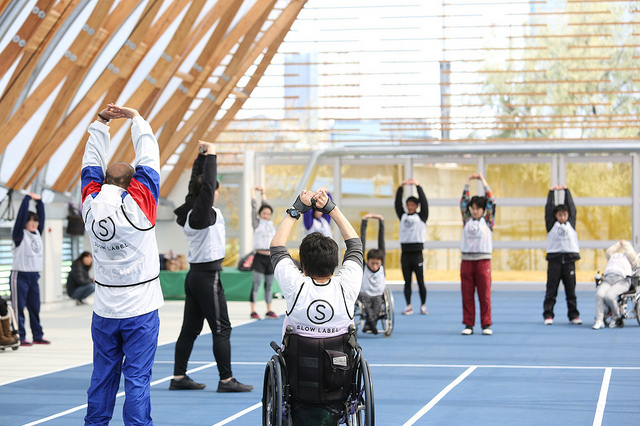
There are both negative and positive opinions regarding holding the Olympic and Paralympic Games, which involves massive investments. However, everything I have written here has become a reality due to the boost provided by the 2020 Tokyo Games. If one is concerned about society in 2021 and later, one should take action. Disabilities are not in the individual but the society. If human resources are cultivated that can make various community activities and situations more inclusive, then a diverse set of people can participate more in society. To break out of Japanese society's current feeling of stagnation, the power of people with diverse ways of living and values is necessary.
May 25th, 2017
Plans
Yokohama Paratriennale
sense of oneness
- First Part: Creation
May 27th (Saturday) to September 30th, 2017
Various locations in Yokohama City and Japan and Southeast Asian countries - Second Part: Presentation
October 7th (Saturday) to 9th (Monday/Holiday)
Zou-no-Hana Terrace (Zou-no-Hana Park) - Third Part: Exhibit Documenting Part 2
November to late December, 2017
Various Locations in Yokohama City
Official Website: http://www.paratriennale.net/en/


